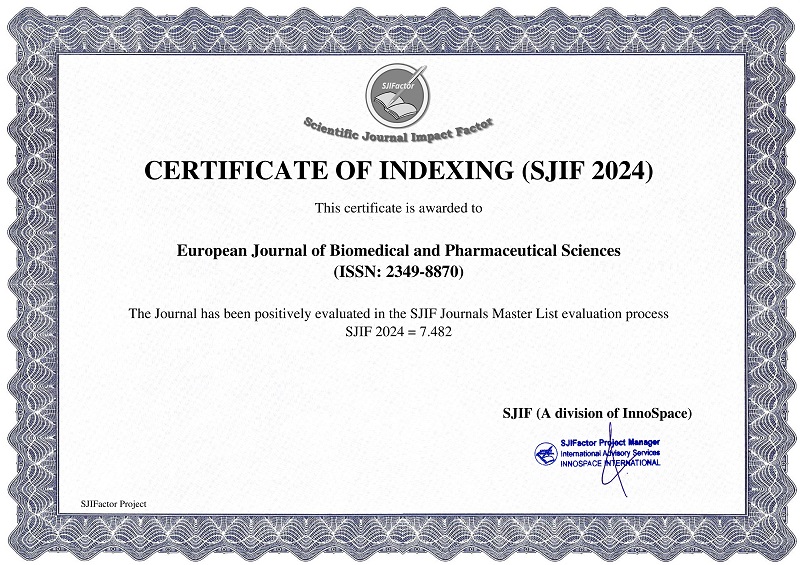THYROID HORMONE AND METABOLIC SYNDROME COMPONENTS
Chaitanya Patel*, Praveen Kumar Vodala, Stephanie Ogbonda, Jawarya Safdar and Suprada S. Vinyak
ABSTRACT
Background: Many studies have showed that there is a strong relation between obesity, insulin resistance, physical inactivity, advanced age, hormonal disturbances and the development of metabolic syndrome. Thyroid dysfunction can cause obesity and this can lead to metabolic syndrome. In this study, we tried to find a correlation between the effect of thyroid function on the components of metabolic syndrome. Methods: We took a total of 70 patients. Blood pressure, waist circumferences, HDL cholesterol and triglycerides were measured in all patients. TSH was measured in all the patients and the patients were divided in three groups: euthyroid, hypothyroid and subclinical hypothyroid. Results: There were 38 females and 32 males. Mean BMI was 27.51±3.13 kg/m2. The mean systolic blood pressure was 139.04±26.67 mm Hg and the diastolic pressure was 88.32±14.95 mm Hg. Mean waist circumference was 102±10.1 cm & mean waist: hip ratio was 0.97±0.094. HDL <50 in males and <40 in females in Euthyroid showed statistical significance (p value 0.05). Other components did not gain a statically significance. Comparing gender wise Subclinical hypothyroidism patients with Euthyroid patients, females having subclinical hypothyroidism are more likely to have metabolic syndrome (p value =0.023). This was not so in case of males. Conclusions: Female patients having subclinical hypothyroidism have higher chances of have metabolic syndrome as compared to males. Euthyroid patients with metabolic syndrome had low HDL cholesterol. Other components of metabolic syndrome had no statically significance with thyroid function.
Keywords: .
[Full Text Article]
[Download Certificate]


 Impact Factor : 8.181
Impact Factor : 8.181 






